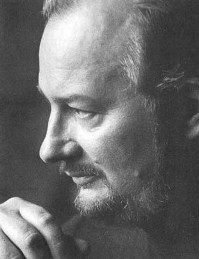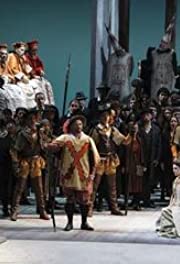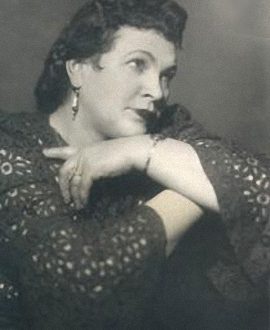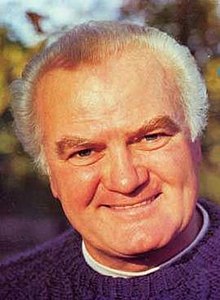
Giuseppe Giacomini |
Giuseppe Giacomini

The name Giuseppe Giacomini is well known in the opera world. This is not only one of the most famous, but also the most peculiar tenors, thanks to a particularly dark, baritone voice. Giacomini is the legendary performer of the difficult role of Don Alvaro in Verdi’s The Force of Destiny. The artist repeatedly came to Russia, where he sang both in performances (Mariinsky Theater) and in concerts. Giancarlo Landini talks with Giuseppe Giacomini.
How did you discover your voice?
I remember that there was always interest around my voice, even when I was very young. The idea of using my opportunities to make a career captured me at the age of nineteen. One day I took a bus with a group to Verona to hear the opera at the Arena. Next to me was Gaetano Berto, a law student who later became a famous lawyer. I sang. He is surprised. Interested in my voice. He says that I need to study. His wealthy family provides me with concrete assistance in order to enter the conservatory in Padua. In those years, I studied and worked at the same time. Was a waiter in Gabicce, near Rimini, worked at a sugar factory.
Such a difficult youth, what significance did it have for your personal formation?
Very big. I can say that I know life and people. I understand what labor, effort mean, I know the value of money, poverty and wealth. I have a difficult character. Often I was misunderstood. On the one hand, I am stubborn, on the other hand, I am prone to introversion, melancholy. These qualities of mine are often confused with insecurity. Such an assessment influenced my relationship with the theater world …
It’s been almost ten years since your debut to when you became famous. What are the reasons for such a long “training”?
For ten years I have perfected my technical baggage. This allowed me to organize a career at the highest level. I spent ten years freeing myself from the influence of singing teachers and understanding the nature of my instrument. For many years I have been advised to lighten my voice, to lighten it up, to abandon the baritone coloration that is the hallmark of my voice. On the contrary, I realized that I must use this coloration and find something new on its basis. Must free himself from imitating such dangerous vocal models as Del Monaco. I must look for a support for my sounds, their position, a more suitable sound production for me. I realized that the true teacher of a singer is the one who helps to find the most natural sound, who makes you work in accordance with natural data, who does not apply already known theories to the singer, which can lead to loss of voice. A real maestro is a subtle musician who draws your attention to inharmonious sounds, shortcomings in phrasing, warns against violence against your own nature, teaches you to use the muscles that serve for emission correctly.
At the beginning of your career, which sounds were already “ok” and which, on the contrary, needed to be worked on?
In the center, that is, from the central “to” to “G” and “A flat”, my voice functioned. Transitional sounds were generally okay too. Experience, however, has led me to the conclusion that it is useful to move the beginning of the transition zone to D. The more carefully you prepare the transition, the more natural it turns out. If, on the contrary, you procrastinate, keep the sound open on “F”, there are difficulties with the upper notes. What was imperfect in my voice was the highest notes, pure B and C. To sing these notes, I “pressed” and looked for their position at the top. With experience, I realized that the upper notes are released if the support is moved down. When I learned to keep the diaphragm as low as possible, the muscles in my throat were freed up, and it became easier for me to reach the higher notes. They also became more musical, and more uniform with the other sounds of my voice. These technical efforts helped to reconcile the dramatic nature of my voice with the need to sing breathlessly and the softness of the sound production.
Which Verdi operas best suit your voice?
Without a doubt, the Force of Destiny. Alvaro’s spirituality is in harmony with my subtlety, with a penchant for melancholy. I’m comfortable with the tessitura of the party. This is mainly the central tessitura, but its lines are very diverse, it also affects the area of the upper notes. This helps the throat to escape tension. The situation is completely opposite to that in which one finds himself who has to perform some passages from the Rustic honor, the tessitura of which is concentrated between “mi” and “sol”. This makes the throat hard. I don’t like the tessitura of Manrico’s part in the Troubadour. She often uses the upper part of her voice, which helps to shift the position that suits my body. Leaving aside the chest C in the cabaletta Di quella pira, Manrico’s part is an example of the kind of tessitura that is difficult for the upper zone of my voice. The tessitura of the part of Radames is very insidious, which during the course of the opera subjects the tenor’s voice to difficult tests.
There remains the problem of Othello. The vocal style of this character’s part does not require as much baritone overtones as is commonly believed. It must be recalled that in order to sing Othello, you need a sonority that many performers do not have. Voicing requires Verdi writing. Let me also remind you that today many conductors tend to emphasize the importance of the orchestra in Othello, creating a real “avalanche of sound”. This adds challenges to any voice, even the most powerful one. The part of Othello can be sung with dignity only with a conductor who understands the requirements of the voice.
Can you name the conductor who put your voice in the right and favorable conditions?
Without a doubt, Zubin Meta. He managed to emphasize the dignity of my voice, and he surrounded me with that calmness, cordiality, optimism, which allowed me to express myself in the best possible way. Meta knows that singing has its own characteristics that go beyond the philological aspects of the score and metronomic indications of tempo. I remember the rehearsals of Tosca in Florence. When we got to the aria “E lucevan le stelle”, the maestro asked the orchestra to follow me, emphasizing the expressiveness of the singing and giving me the opportunity to follow Puccini’s phrase. With other conductors, even the most outstanding ones, this was not always the case. It is with Tosca that I have connected not too happy memories of conductors, the strictness, inflexibility of which prevented my voice from being fully expressed.
Puccini’s vocal writing and Verdi’s vocal writing: can you compare them?
Puccini’s vocal style instinctively draws my voice to singing, Puccini’s line is full of melodic power, which carries the singing along with it, facilitates and makes natural the explosion of emotions. Verdi’s writing, on the other hand, requires more deliberation. A demonstration of the naturalness and originality of Puccini’s vocal style is contained in the finale of the third act of Turandot. From the first notes, the tenor’s throat discovers that the writing has changed, that the flexibility that characterized the previous scenes no longer exists, that Alfano could not, or did not want to, use Puccini’s style in the final duet, his manner of making voices sing, which has no equal.
Among Puccini’s operas, which are the closest to you?
Without a doubt, the Girl from the West and in recent years Turandot. Calaf’s part is very insidious, especially in the second act, where the vocal writing is concentrated mainly on the upper zone of the voice. There is a risk that the throat will become hard and not enter into a state of release when the moment of the aria “Nessun dorma” comes. At the same time, there is no doubt that this character is great and brings great satisfaction.
What verist operas do you prefer?
Two: Pagliacci and André Chenier. Chenier is a role that can bring the tenor the greatest satisfaction that a career can give. This part uses both a low voice register and ultra-high notes. Chenier has it all: a dramatic tenor, a lyrical tenor, a tribune’s recitation in the third act, passionate emotional outpourings, such as the monologue “Come un bel di di maggio”.
Do you regret that you did not sing in some operas, and do you regret that you sang in others?
I’ll start with the one in which I should not have performed: Medea, in 1978 in Geneva. Cherubini’s icy neoclassical vocal style does not bring any satisfaction to a voice like mine, and a tenor with a temperament like mine. I regret that I did not sing in Samson and Delilah. I was offered this role at a time when I didn’t have time to study it properly. No more opportunity presented itself. I think the result could be interesting.
What theaters did you like the most?
Subway in New York. The audience there really rewarded me for my efforts. Unfortunately, for three seasons, from 1988 to 1990, Levine and his entourage did not give me the opportunity to show myself the way I deserved it. He preferred to entrust important premieres to singers with more publicity than me, leaving me in the shadows. This determined my decision to try myself in other places. At the Vienna Opera, I had success and considerable recognition. Finally, I would like to mention the incredible warmth of the audience in Tokyo, the city where I received a real standing ovation. I remember the applause that was awarded to me after “Improvisation” in Andre Chenier, which has not been performed in the Japanese capital since Del Monaco.
What about Italian theatres?
I have wonderful memories of some of them. At the Bellini Theater in Catania between 1978 and 1982 I made my debut in significant roles. The Sicilian public received me warmly. The season in the Arena di Verona in 1989 was magnificent. I was in great shape and the performances as Don Alvaro were among the most successful. Nevertheless, I must complain that I did not have such an intense relationship with Italian theaters as I have with other theaters and other audiences.
Interview with Giuseppe Giacomini published in l’opera magazine. Publication and translation from Italian by Irina Sorokina.
Debut 1970 (Vercelli, Pinkerton part). He sang in Italian theaters, since 1974 he performed at La Scala. Since 1976 at the Metropolitan Opera (debut as Alvaro in Verdi’s The Force of Destiny, among other parts of Macduff in Macbeth, 1982). Repeatedly sang at the Arena di Verona festival (among the best parts of Radamès, 1982). In 1986, he performed the part of Othello in San Diego with great success. Recent performances include Manrico at the Vienna Opera and Calaf at Covent Garden (both 1996). Among the parts are also Lohengrin, Nero in Monteverdi’s The Coronation of Poppea, Cavaradossi, Dick Johnson in The Girl from the West, etc. Among the recordings of the part of Pollio in Norma (dir. Levine, Sony), Cavaradossi (dir. Muti, Phiips) .
E. Tsodokov, 1999





